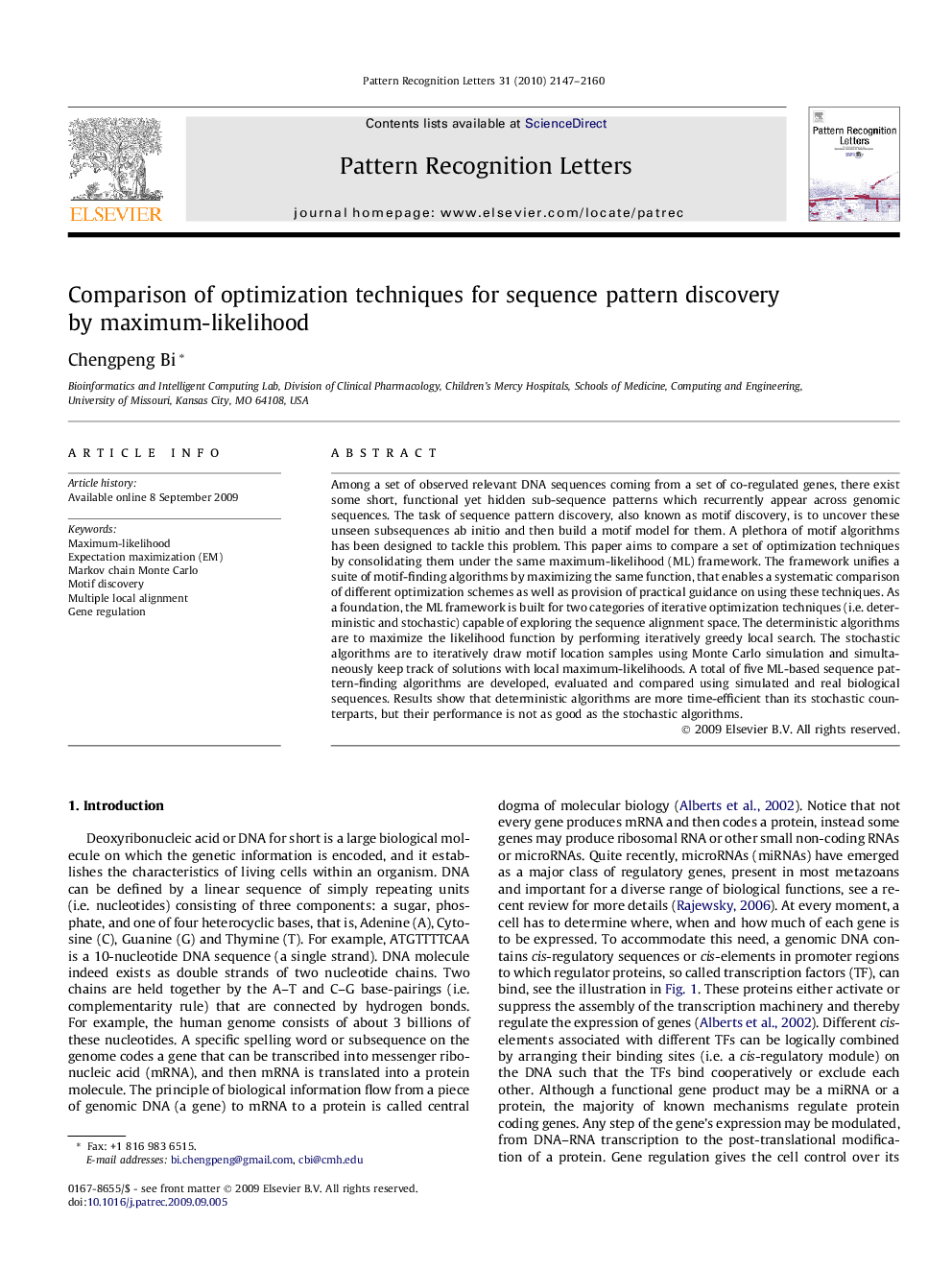| کد مقاله | کد نشریه | سال انتشار | مقاله انگلیسی | نسخه تمام متن |
|---|---|---|---|---|
| 534325 | 870245 | 2010 | 14 صفحه PDF | دانلود رایگان |

Among a set of observed relevant DNA sequences coming from a set of co-regulated genes, there exist some short, functional yet hidden sub-sequence patterns which recurrently appear across genomic sequences. The task of sequence pattern discovery, also known as motif discovery, is to uncover these unseen subsequences ab initio and then build a motif model for them. A plethora of motif algorithms has been designed to tackle this problem. This paper aims to compare a set of optimization techniques by consolidating them under the same maximum-likelihood (ML) framework. The framework unifies a suite of motif-finding algorithms by maximizing the same function, that enables a systematic comparison of different optimization schemes as well as provision of practical guidance on using these techniques. As a foundation, the ML framework is built for two categories of iterative optimization techniques (i.e. deterministic and stochastic) capable of exploring the sequence alignment space. The deterministic algorithms are to maximize the likelihood function by performing iteratively greedy local search. The stochastic algorithms are to iteratively draw motif location samples using Monte Carlo simulation and simultaneously keep track of solutions with local maximum-likelihoods. A total of five ML-based sequence pattern-finding algorithms are developed, evaluated and compared using simulated and real biological sequences. Results show that deterministic algorithms are more time-efficient than its stochastic counterparts, but their performance is not as good as the stochastic algorithms.
Journal: Pattern Recognition Letters - Volume 31, Issue 14, 15 October 2010, Pages 2147–2160